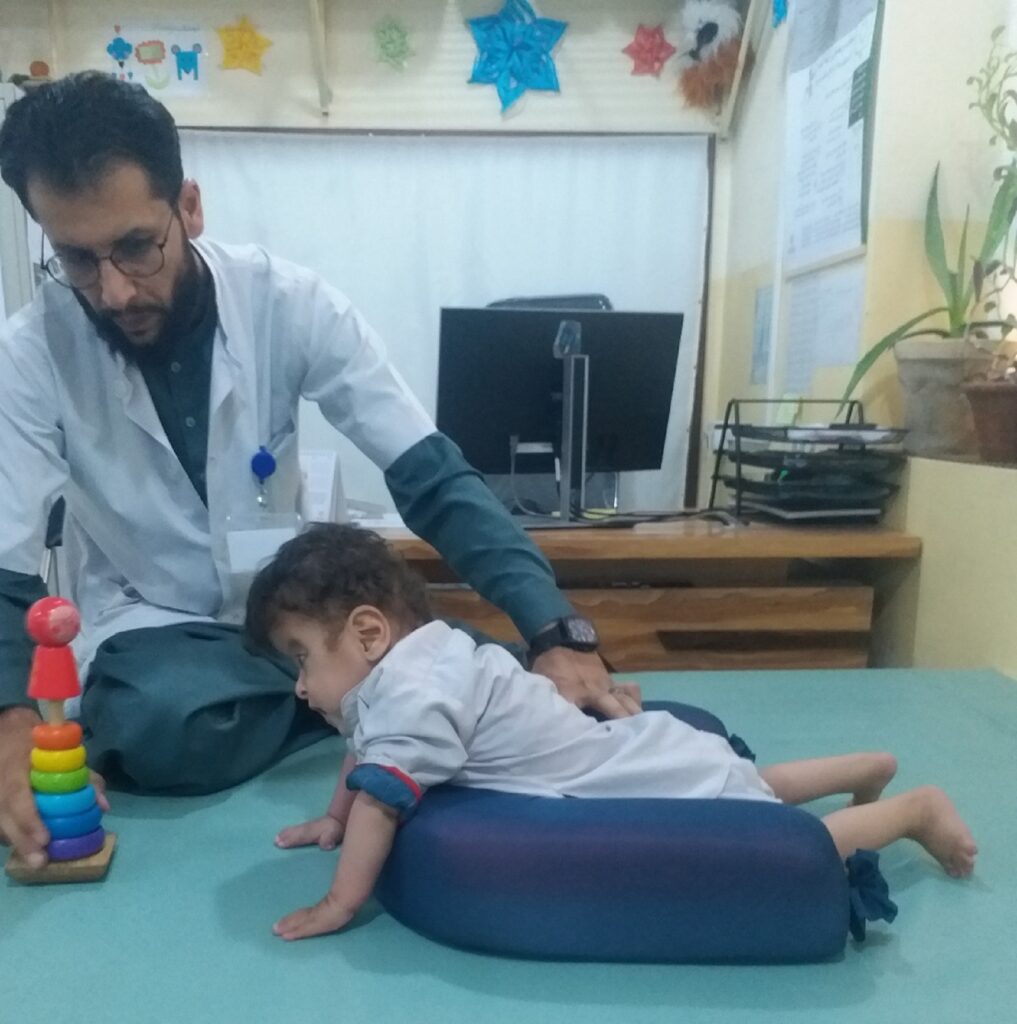In Afghanistan, where traditional educational resources are often hindered by myriad challenges, a revolutionary approach to professional development in the rehabilitation sector is unfolding. Against a backdrop of heightened security concerns, limited resources, and infrastructural constraints, innovative strategies have propelled the field of rehabilitation education into a new era, demonstrating resilience and adaptability in the face of adversity.
The primary problem was the inability for the International Committee of the Red Cross (ICRC) to conduct in-person training, a crucial aspect of technical rehabilitation development in the country, which necessitated a shift towards innovative solutions. The opportunity to use Physiopedia Plus (Plus), and the ReLAB-HS developed courses, was pivotal. A range of courses that matched the specific training needs of the rehabilitation professionals in Afghanistan, including spinal cord injury, amputees, paediatrics and neurological conditions, was available. “The courses were diverse and comprehensive, providing our team with the knowledge they needed, despite the distance,” remarked Regina Regina Zulianello (Regina), the physiotherapy team leader of the ICRC physical rehabilitation centre in Kabul.

The ICRC health and rehabilitation staff were assigned courses suited to their clinical context and completion of courses was a required professional development component of their annual appraisal. This approach was crucial not only for skill development but also for maintaining a sense of continuity and community among the staff.
“It was heartening to see our staff embracing these learning opportunities…our staff’s technical skills improved significantly, and we saw a notable rise in their confidence levels”
However, implementing Plus was not without its challenges. Regina recounts the daunting initial challenges: “Our staff faced substantial hurdles, from diverse language proficiencies to sporadic internet access. Adapting to digital learning in such an environment was not just a necessity but a leap into the unknown.” The need for specialised training across various departments added layers of complexity.
The most significant hurdles included limited internet access and electricity shortages. To address these issues, flexible study hours were introduced. “We had to be creative in our approach to ensure that everyone had access to these valuable resources,” Regina added. In the future staff will be encouraged to use the ReLAB-HS supported mobile application that allows for offline learning without the need for internet or electricity.
This barrier was compounded by the diverse English proficiency levels among the staff, which made the selection of suitable courses challenging. Acknowledging the diverse linguistic capabilities of the rehabilitation professionals, courses were carefully reviewed, selected and sometimes modified, focusing on the clarity of language and presentation style to ensure accessibility for all learners. Further innovations will introduce peer to peer presentations to facilitate knowledge translation in local languages.
Regina’s innovative strategies and dedication to overcoming these obstacles led to impressive results. By the end of the year, around 223 staff members had completed their appraisals using this new system. This achievement was a testament to the adaptability and resilience of the team under challenging circumstances.
The impact of these efforts was profound. “We witnessed a remarkable increase in course engagement. It was heartening to see our health staff embracing these learning opportunities,” Regina reflects. The digital platform facilitated a structured appraisal system, leading to enhanced performance evaluations. “Our staff’s technical skills improved significantly, and we saw a notable rise in their confidence levels” Regina adds.

The successful integration of Plus and the ReLAB-HS courses into Afghanistan’s rehabilitation sector stands as a testament to the effectiveness and resilience of digital learning platforms in low-resource settings. This initiative has demonstrated that with thoughtful adaptation and strategic planning, professional development activities can be effectively delivered even in the most challenging environments. The approach adopted in Afghanistan serves as a blueprint for similar contexts, where resources are scarce and traditional methods of professional development are hindered by various constraints. The key to success was the programme’s adaptability to the unique needs and circumstances of the learners, offering valuable insights and lessons for similar initiatives worldwide.